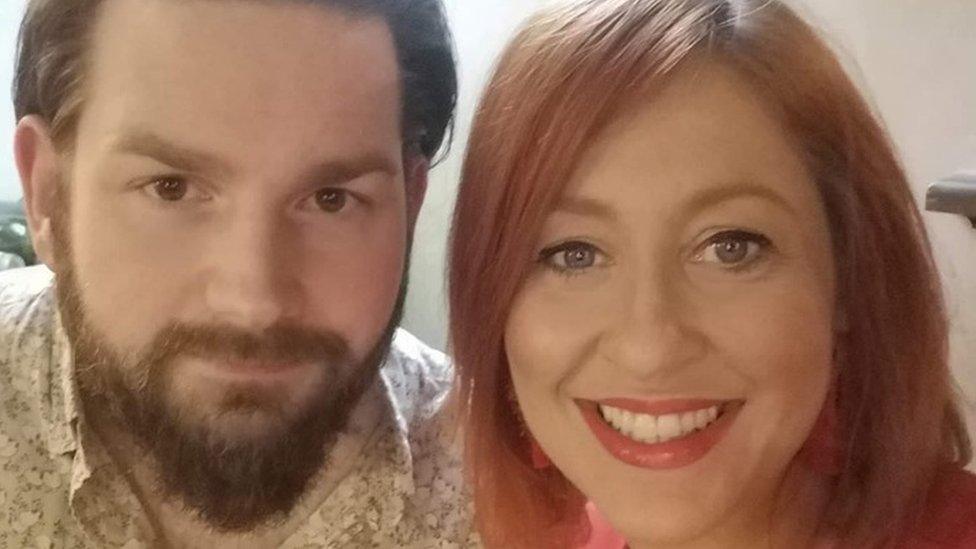Covid restrictions postpone woman's IVF treatments abroad
- Published
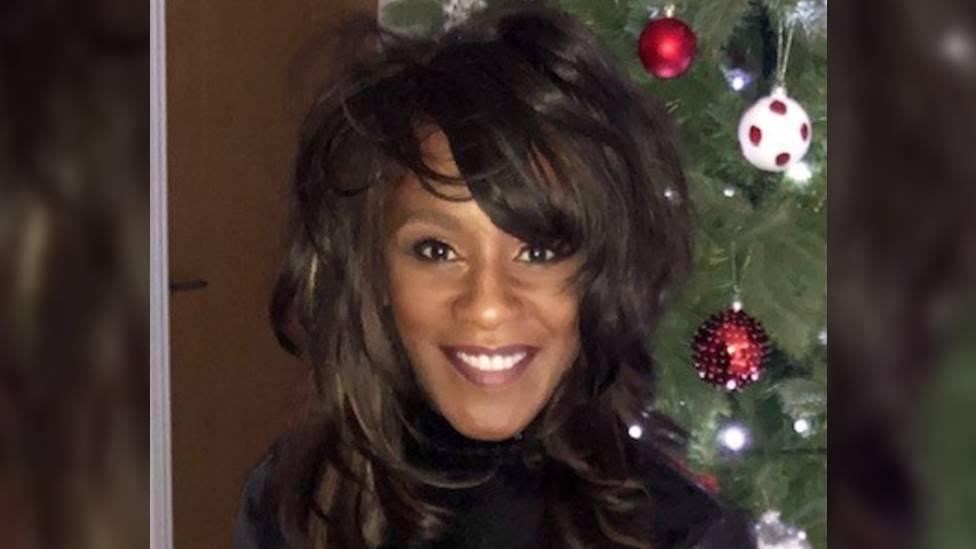
Sheona has been trying for a baby for eight years - and has suffered further delays due to lockdown
A woman who cannot travel abroad for IVF said she feels the "clock is ticking" on her chance to have a baby.
Sheona, 45, from south Wales, was due to have the treatment at a private clinic in Spain, after an unsuccessful attempt on the NHS in Cardiff.
But Covid restrictions have prevented her from going, adding to the eight years she has been trying.
Foreign Office guidance advises British nationals against all but essential international travel.
Sheona said she had previously suffered natural miscarriages and, after unsuccessful IVF treatment on the NHS, she decided last year to go to Spain for treatment for financial reasons.
Her initial trip proved unsuccessful and she planned to have a second round of fertility treatment earlier this year, but because of the ongoing pandemic has had to keep pushing back the trip.
Speaking to BBC Radio Wales Breakfast during Fertility Awareness Week, Sheona said: "Not being a parent is something that I think about every day, and every month that goes by feels like it takes away time I could have with my child at the other end of the process.
"People say 'you've got time', but I don't and you do feel embarrassed that you can't conceive."
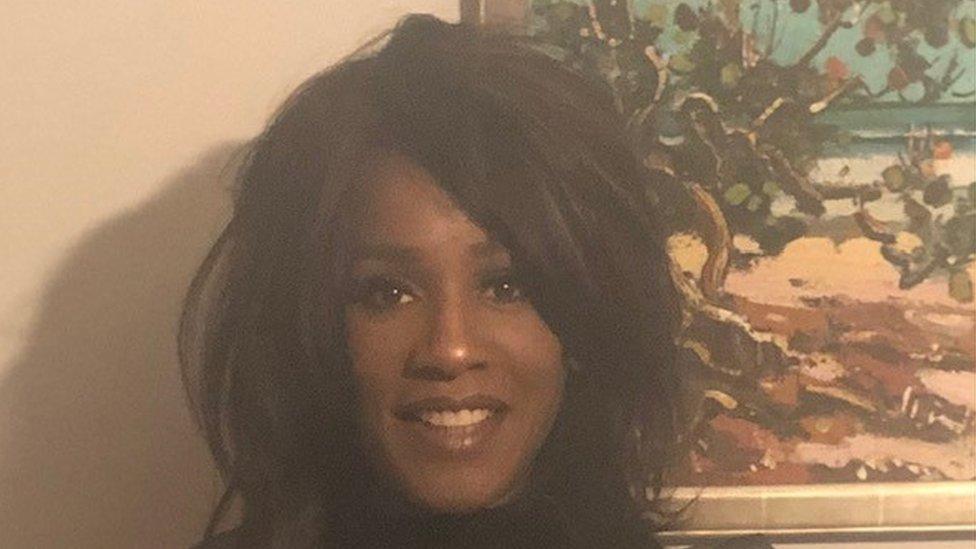
Sheona said she feels "embarrassed" that she is unable to conceive
While the majority of fertility clinics in the UK have now re-opened, the Foreign Office is still advising against all but essential international travel., external
If Sheona decides to travel to Spain against this guidance, she said she will still be unable to access aftercare in a UK clinic, while strict conditions need to be met to import her frozen eggs from Spain.
"With clinics being shut down, it did hinder additional treatments that, for me, help on the fertility journey," she said.
"My clinic in Spain is open and everything is back to normal apart from the extra measures. We're aiming for January but who knows what could happen then."
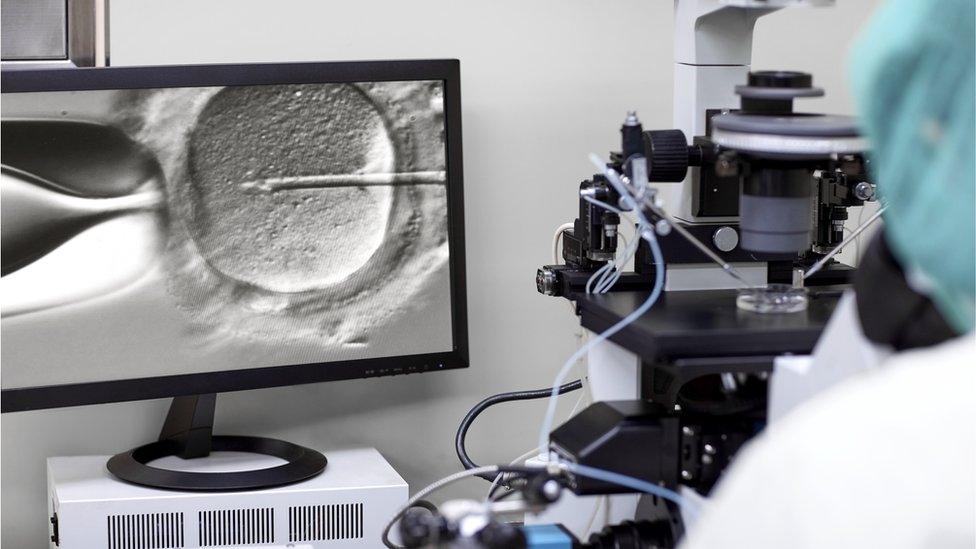
Fertility Network UK has moved support for couples online due to the pandemic
Meanwhile Zoe, from Neath, has been able to restart her fertility treatment after it was postponed at the start of lockdown but has concerns about her partner not being able to be with her.
"I'm not so worried about the physical side of it but it's when they come and chat to you afterwards and they tell you what the outcome is," she said.
"And it's kind of the thought of doing that without having my husband there to support me through that and might that be the case.
"That's an amazing moment when you're there and you actually watch it on the screen you actually see your five-day-old embryo. And again, that's something that he's not going to be able to be there for."
Clinics 'must follow guidance'
Alice Matthews, Wales coordinator for Fertility Network UK, external, said support was available for women and couples going through fertility journeys.
"We've moved our support groups online so there is support available for people who have been affected by delays to IVF during lockdown," she said.
The Human Fertilisation and Embryology Authority, which oversees fertility treatment in the UK has said it expects clinics to follow the coronavirus guidance.
"As the pandemic continues, we recognise that individual clinics may face circumstances where they will have to consider whether they can continue to maintain a safe service for a period of time - for example if they have a high level of staff sickness or their local hospital trust decides to restrict some patient services.
"We expect clinics to follow professional and local guidance and to review and adapt their treatment strategy to ensure fertility treatment can continue to be provided safely."
- Published30 September 2020
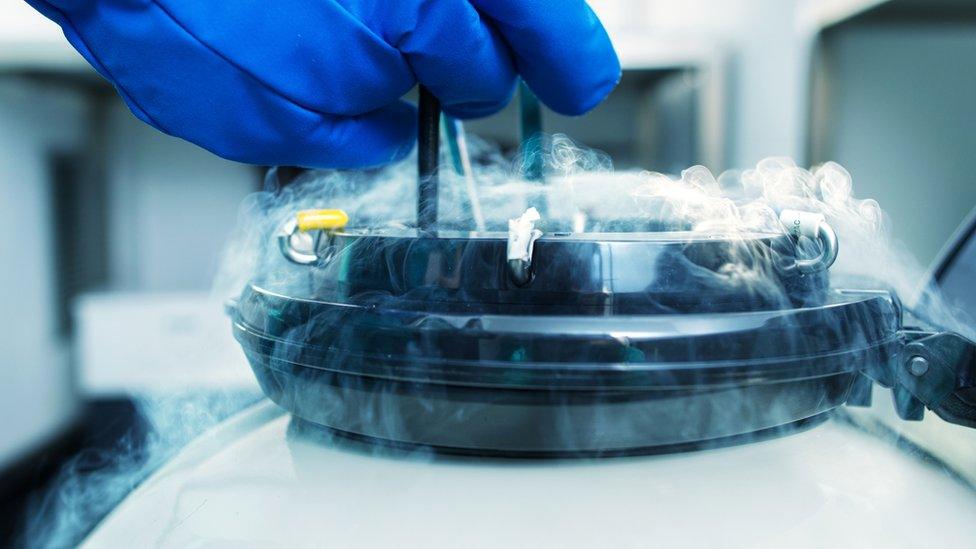
- Published15 April 2020
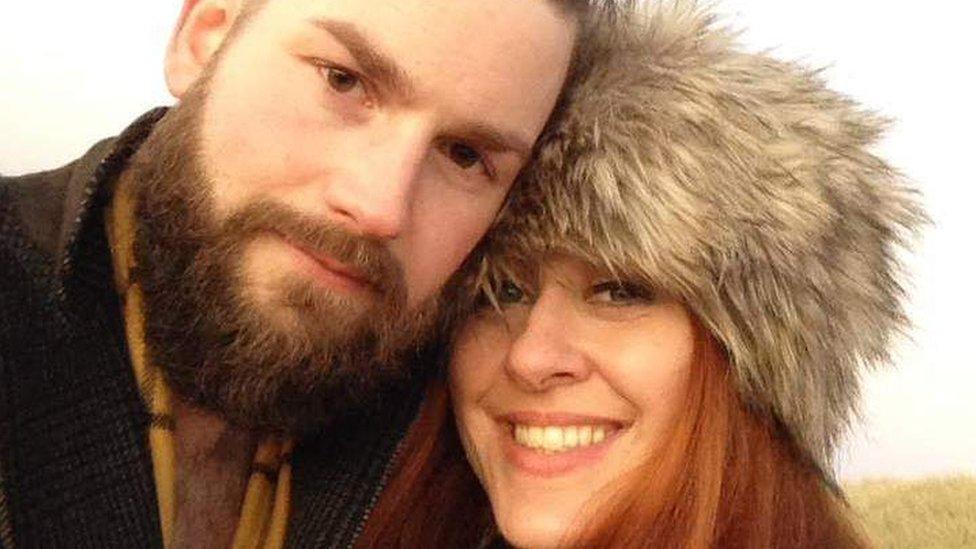
- Published17 May 2020
